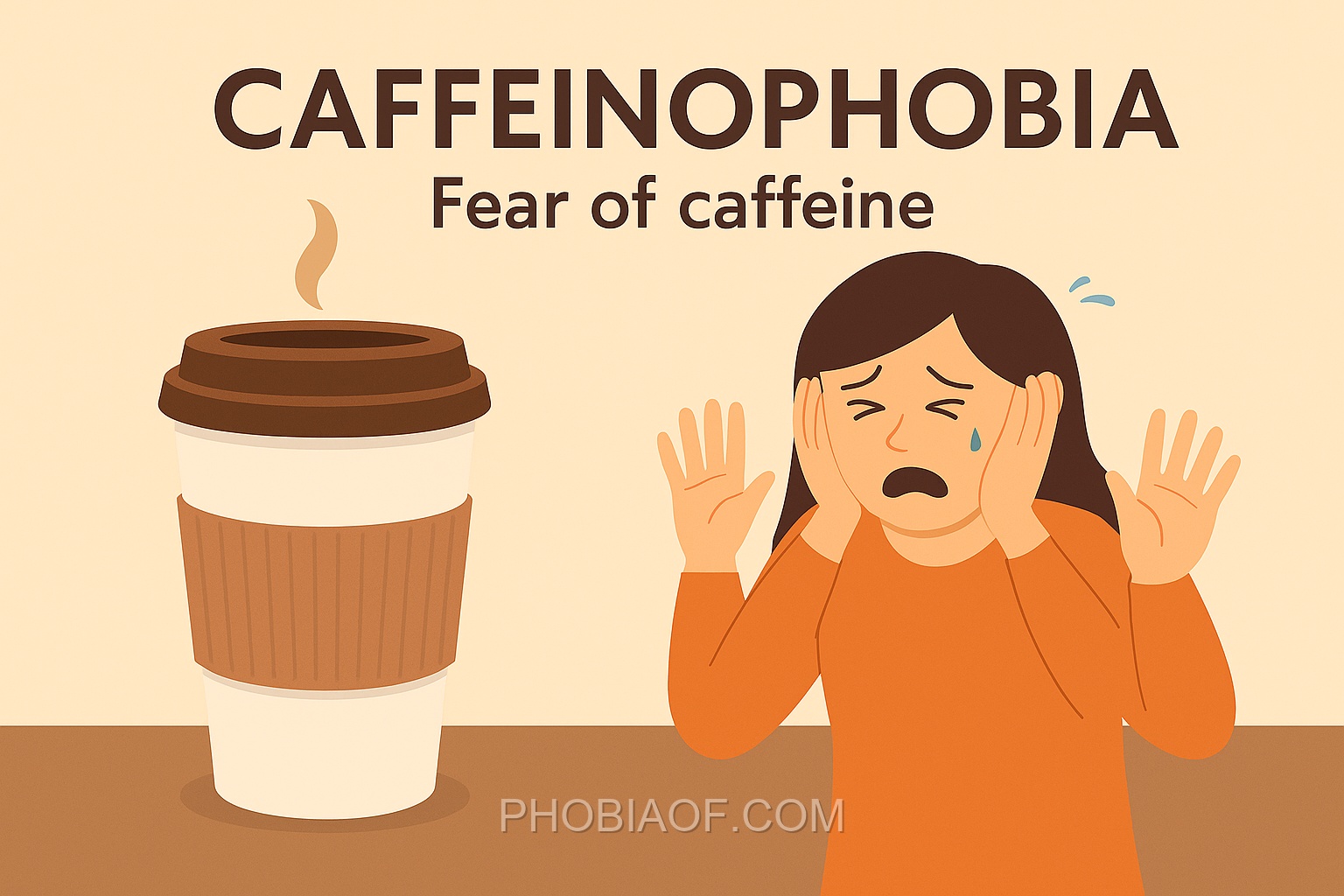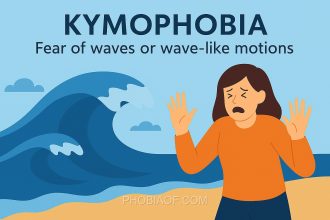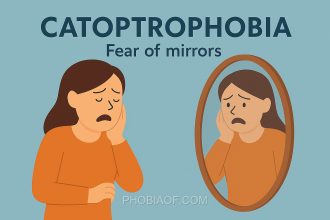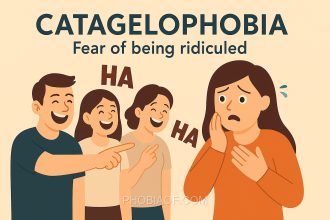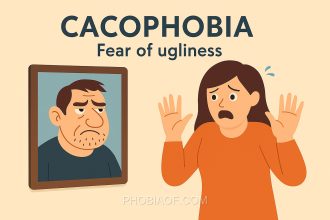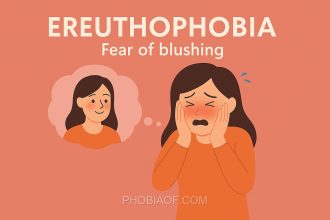Have you ever felt uneasy at the thought of drinking a cup of coffee or consuming anything with caffeine? If so, you might be experiencing something known as caffeinophobia.
Caffeinophobia, in everyday language, is the fear of caffeine. It is derived from the word “caffeine” and the Greek word “phobos,” which means fear. While it may seem unusual to some, for those who live with this phobia, the apprehension surrounding caffeine is very real and can impact their daily lives significantly.
People with caffeinophobia often avoid common caffeinated products like coffee, tea, or even chocolate, which can affect their social interactions and dietary choices. This fear might stem from concerns about the potential physical effects of caffeine, such as increased heart rate or anxiety. Understanding this fear with empathy is crucial, as it is not merely a preference but a genuine phobia that can cause distress.
- Avoidance of caffeinated beverages and foods.
- Increased anxiety or distress when around caffeine or thinking about consuming it.
- Potential social implications, such as avoiding coffee shops or gatherings where caffeine is prevalent.
By comprehending the roots and effects of caffeinophobia, we can better support those who are affected by it. Whether you’re seeking to understand your own experiences or those of someone you know, approaching this topic with compassion and openness can make a significant difference.
Causes of Caffeinophobia
Caffeinophobia, or the fear of caffeine, can stem from a variety of sources. This fear may develop due to a combination of genetic, psychological, and environmental factors. Understanding these causes can help in addressing and managing the phobia effectively.
Genetic Predisposition
One potential cause of caffeinophobia is genetic predisposition. Some individuals may be genetically inclined to develop phobias or anxiety disorders. If a family member has an anxiety disorder or a specific phobia, it might increase the likelihood of developing caffeinophobia.
Traumatic Experiences
Traumatic experiences related to caffeine consumption can lead to the development of caffeinophobia. For example, if someone experienced severe anxiety or a panic attack after consuming a large amount of caffeine, they might associate caffeine with these negative experiences and develop a fear of it.
Learned Behavior
Learned behavior from others can also play a significant role. If a person grows up in an environment where family members or peers express fear or negativity towards caffeine, they might adopt these beliefs and behaviors. Observing someone else’s anxious response to caffeine can reinforce this fear.
Psychological and Environmental Factors
Other psychological factors, such as general anxiety or health anxiety, can contribute to caffeinophobia. Environmental factors, such as cultural attitudes towards caffeine, media reports highlighting its potential dangers, or societal pressures to avoid certain substances, can also influence this fear.
Interesting Theories and Research
- Some theories suggest that individuals with high sensitivity to caffeine’s effects might be more prone to developing caffeinophobia.
- Research indicates that negative media portrayals of caffeine’s impact on health can amplify fears and misconceptions about its consumption.
Overall, caffeinophobia is a complex condition with multiple contributing factors. Recognizing the causes can be the first step in seeking appropriate treatment and overcoming the fear.
Symptoms of Caffeinophobia
Caffeinophobia, or the fear of caffeine, can manifest as an intense fear or anxiety associated with caffeine consumption. This phobia can significantly impact a person’s emotional and physical well-being. Below are some common symptoms that individuals with caffeinophobia may experience:
Physical Symptoms:
- Panic attacks characterized by sudden and intense fear.
- Excessive sweating, especially in situations where caffeine exposure is possible.
- Rapid heartbeat or palpitations triggered by the thought or sight of caffeine.
- Shortness of breath or hyperventilation when confronting caffeine-related situations.
- Feeling dizzy or lightheaded, particularly in environments where caffeine is prevalent.
Emotional and Behavioral Symptoms:
- Avoidance of caffeine-containing products, such as coffee, tea, and chocolate.
- Overwhelming dread or anxiety when thinking about caffeine or being around it.
- Difficulty concentrating or focusing when in the presence of caffeine.
- Persistent worry about the potential effects of caffeine on the body.
- Refusal to participate in social activities where caffeine may be present.
When severe, these symptoms can interfere with daily life, making it challenging for individuals to engage in social, occupational, or personal activities where caffeine might be encountered.
Treatment for Fear of Caffeine
If you are struggling with a fear of caffeine, also known as caffeinophobia, it is important to know that you are not alone, and there are effective treatments available. Over time, with the right approach, this phobia can be managed and overcome.
Here are some proven therapies and coping strategies that can help:
Therapy Options
- Exposure Therapy: This involves gradually facing your fear of caffeine in a controlled and safe environment. By slowly introducing caffeine-related stimuli, you can reduce your anxiety over time and increase your comfort level.
- Cognitive-Behavioral Therapy (CBT): CBT helps you identify and change the fearful thoughts and beliefs associated with caffeine. By restructuring these thoughts, you can alleviate the anxiety and fear.
- Counseling: Speaking with a therapist can provide support and guidance as you work through your phobia. Counseling offers a safe space to explore your fears and develop coping strategies.
Self-Help Coping Techniques
- Relaxation Exercises: Techniques such as deep breathing, progressive muscle relaxation, and visualization can help calm your mind and reduce anxiety.
- Meditation: Regular meditation practice can help you manage stress and anxiety, making it easier to face your fears.
- Support Groups: Joining a support group can provide encouragement and validation from others who understand what you are going through.
In some severe cases, medication such as anti-anxiety medications might be considered. However, it is essential to focus on therapy and coping skills as the primary treatment options.
If your fear of caffeine is interfering with your daily life, we encourage you to seek professional help. A mental health professional can guide you on the best treatment path and support you as you work towards overcoming your phobia.
Conclusion
Understanding the causes and symptoms of caffeinophobia is a crucial step in addressing this often-overlooked phobia. By recognizing the triggers and manifestations of the fear of caffeine, individuals can begin to take control of their experiences and reduce the impact of this phobia on their daily lives. Awareness empowers individuals to confront their fears with confidence and clarity.
It’s important to remember that overcoming or managing phobias is a journey that many have successfully navigated. With time, patience, and the right support, it is entirely possible to diminish the hold that caffeinophobia may have. Whether through gradual exposure, cognitive-behavioral strategies, or professional guidance, there are numerous paths to finding relief.
If you or someone you know is struggling with caffeinophobia, consider seeking support from a therapist or talking to a doctor. Professional help can provide valuable tools and techniques to manage the phobia effectively. Embrace the journey with optimism and know that with each step, you are moving towards a more empowered and fear-free life.
